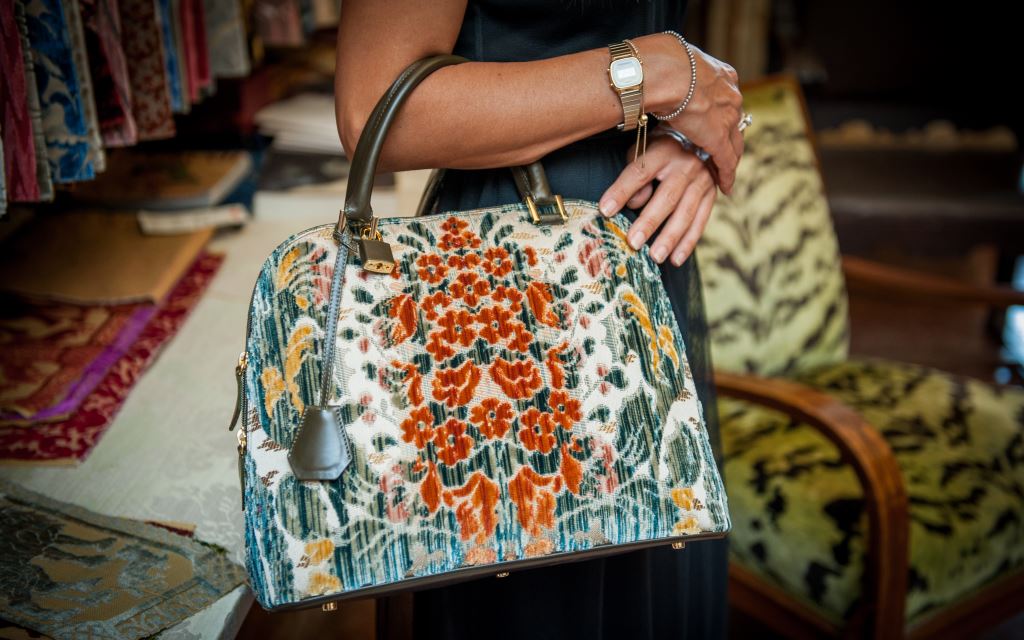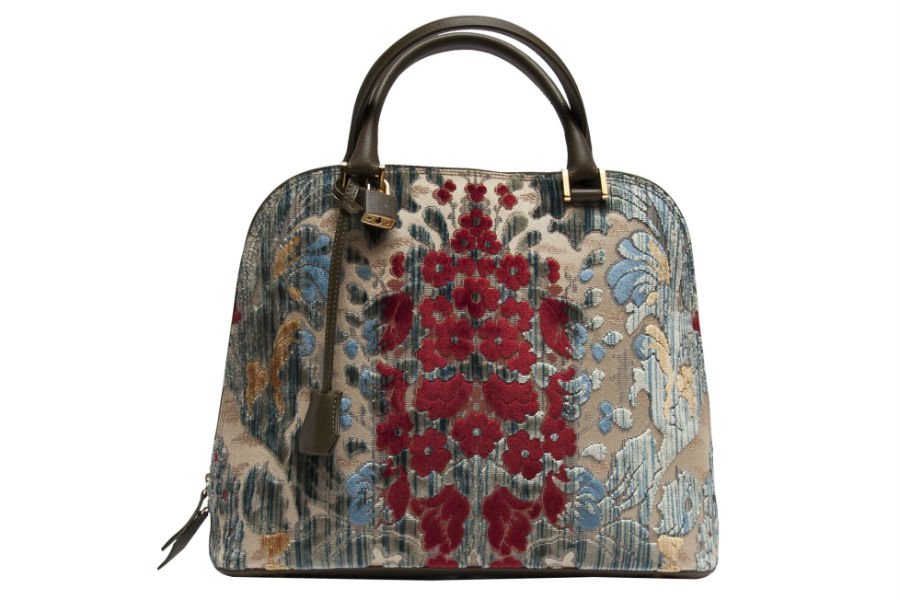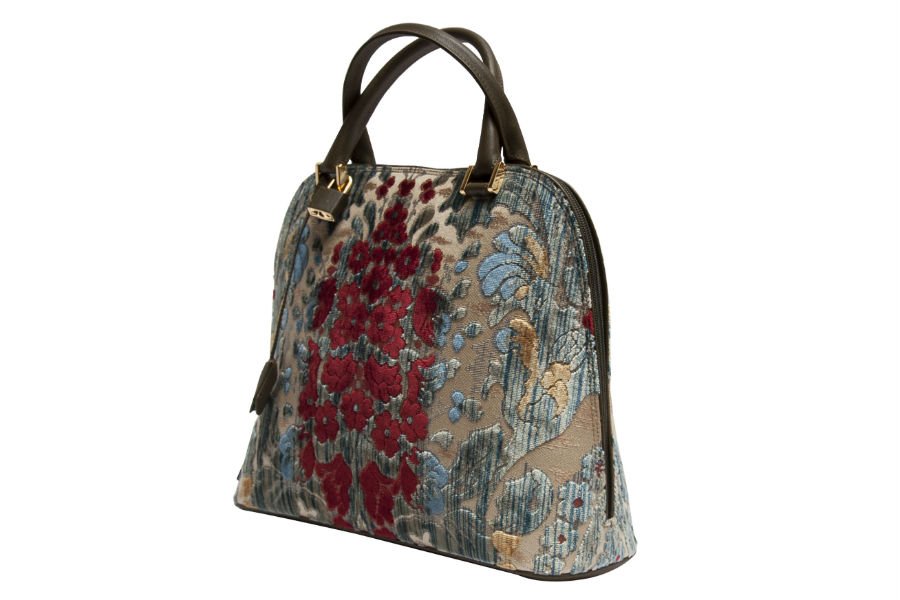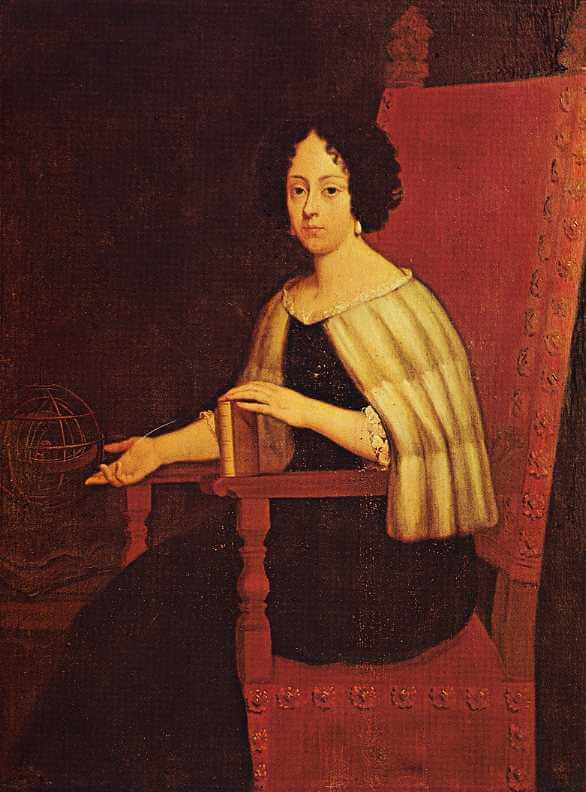The idea that inspired Elena, one of Bevilacqua’s floral velvet bags, was making the most of the elegant and romantic side of whom wears it, not only on special occasions, but rather in everyday life. But how can it manage to do that?
The secrets behind Elena, the day floral velvet bag
Elena is a day frame handbag meant for women who work or study and carry around the small objects they need all day long.
The velvet we’ve chosen to cover it aims at adding a touch of spring to the days of its wearer, far from the seriousness a office or lecture room requires. It’s the Fresie multi-coloured velvet, one of the jardinière velvets of our collection.
As its name reveals, the pattern of this velvet is full of flowers: freesias, most of all, as well as other flowers and leaves. And, just like the 18th-century furnishing fabrics this design reproduces, they’re as faithful a reproduction of reality as possible.
The Elena handbag is therefore designed to give a sober style some colour and springlike spirit. But not only: like all floral handbags, Elena celebrates the feminine side of the woman who carries it, even while she’s facing her daily routine. Just like the woman it draws its inspiration from, who never concealed her womanhood, even in a – at that time – male-dominated environment: university.
Who’s Elena Lucrezia Cornaro Piscopia
The woman we dedicated this bag to is Elena Lucrezia Cornaro Piscopia, the first woman graduate in the world. Indeed, in 16778 she received a degree in Philosophy at the university of Padua, thus becoming the first woman who could use the title of Doctor.
But the road that led her there was far from easy: Elena – the fifth of seven children, born in 1646 in Venice – could count on the support of her family, one of the oldest noble families in the city, an on an extraordinary intelligence. She started studying Latin and Greek at the age of seven, encouraged by her father, which were soon followed by Hebrew, maths, astronomy, geography, music and dialectics.
Her talents collided with the hostility of university professors, though: her dream was to graduate in theology, but awarding a woman a Doctor of Theology was out of question, at that time. Even the vows she had taken couldn’t help her: since 1665, Elena was a Benedictine oblate, i.e. she had taken the same vows as nuns, but kept on living in her father’s house.
What let her become a Doctor of Philosophy was the intervention of one of her tutors and of her father’s friends at the university. Thanks to their intervention and to her own intelligence, Elena could therefore fulfill her dream and then meet scholars from all over the world, who were eager to discuss with a woman with so deep a knowledge and exceptional oratory skills.





